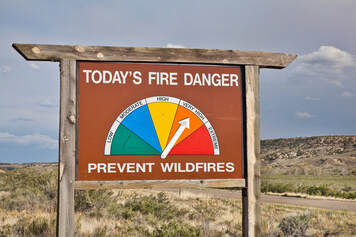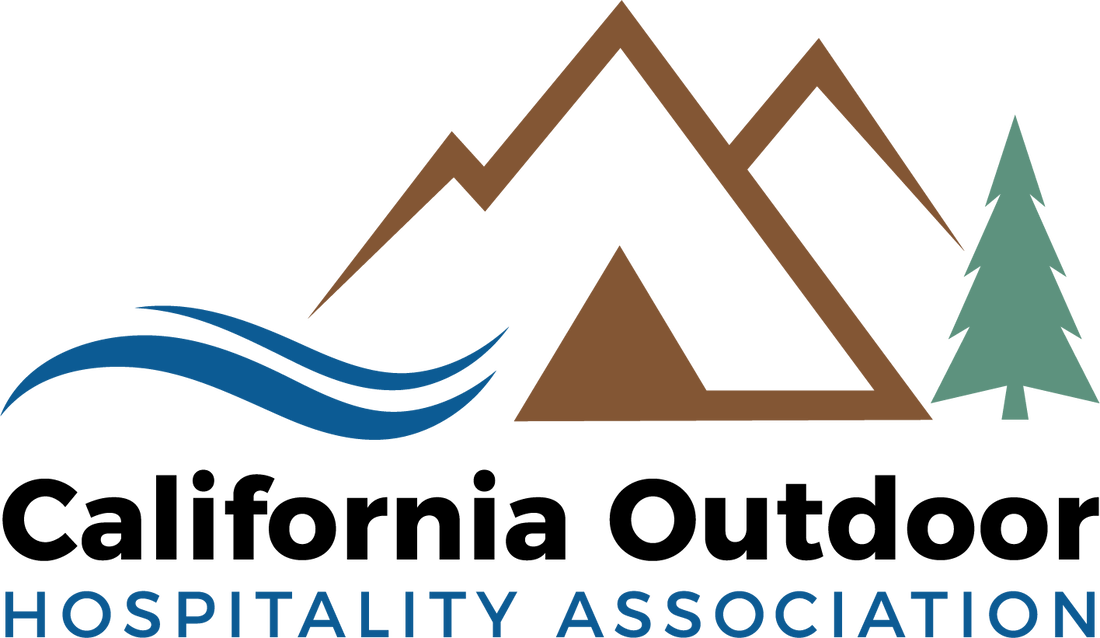 It can sometimes be difficult to determine whether a guest’s animal is an ADA service animal or just a pet. CalOHA, with the help of Hart Kienle Pentecost, is here to help explain the differences. Our White Paper series, located in the Document Library, outline The American Disability Act (ADA) regulations to clarify the definitions of both service animals and companion animals plus the reasonable accommodations that businesses are required to provide. A service animal is defined as: “any dog that is individually trained to do work or perform tasks for the benefit of an individual with a disability, including a physical, sensory, psychiatric, intellectual, or other mental disability. Other species of animals, whether wild or domestic, trained, or untrained, are not service animals for the purposes of this definition. The work or tasks performed by a service animal must be directly related to the handler´s disability.” In essence, this means a service animal is not a pet. Specifically, a service animal is a dog (with very limited exceptions) which has been trained to perform work or tasks and provide assistance to a person with a disability. Businesses are also required to make reasonable accommodations to not only the disabled person, but their service animal as well, should they require one. The biggest inquiry we receive about service animals is what questions you as a park owner are legally allowed/not allowed to ask to determine if the animal being brought into the park is indeed a service animal or a pet. The ADA regulation has two rules: 1. You cannot ask for certification or licensing. The ADA does not require certification as part of the service animal definition. 2. You can ask, in a non-offensive manner, if the animal is required for a disability and, if so, what tasks it is trained to perform. However, if the animal’s service tasks are obvious, these questions should not be asked. Service animals may also be removed from your premises under limited circumstances. Should there be a legitimate reason to ask the service animal to be removed, the park must offer the person with the disability the opportunity to stay without the animal’s presence. To view the full ADA Service Animal White Paper, including sample guidelines for guests, check out the CalOHA Document Library!
0 Comments
 This past weekend showed California’s first heat wave of the summer, with temperatures hitting the triple digits. If you have employees who are working outside, it is important to remember how to protect them from heat illnesses. California has seen some warmer temperatures thus far this summer, but nothing like last weekend. With workers not being acclimated to such high temperatures yet, make sure they are being closely observed for any signs of heat illness. CalChamber has also shared 5 steps for all industries to take to prevent heat illness.
In addition to these steps, employees with existing health problems or medical conditions that diminish tolerance to heat should be extra cautious. Certain medications can also increase a workers’ risk for heat illness. To prevent heat illnesses, it is important that supervisors are trained on emergency procedures just in case an employee becomes ill. This helps to ensure that sick employees receive the proper treatment immediately and that their symptoms do not develop into a serious illness or death. For more information and resources, check out CalChamber’s full article  While the majority of California’s employment law changes are made at the start of the calendar year, they are constantly evolving throughout year, oftentimes without employers’ realization. To keep employers up to date on all the changes that have been implemented thus far this year, CalChamber has released their 2023 Midyear Employment Law Update. According to CalChamber, this year has been a busy one, with local ordinance updates, federal and state court decisions, regulatory developments from multiple departments, and important decisions from the National Labor Relations Board (NLRB). Among the Local Ordinance Updates are minimum wage increases for many California cities and counties. Effective July 1, 2023, the following localities will increase their minimum wage to: • Alameda: $16.52/hour • Berkeley: $18.07/hour • Emeryville: $18.67/hour • Fremont: $16.80/hour • Los Angeles City: $16.78/hour • Los Angeles County (unincorporated areas): $16.90/hour • Malibu: $16.90/hour • Milpitas: $17.20/hour • Pasadena: $16.93/hour • San Francisco: $18.07/hour • Santa Monica: $16.90/hour • West Hollywood: $19.08/hour All California employers with employees in these jurisdictions should prepare to implement these new minimum wage rates. Employers should also check to see if their city/county has any required posters or updates for July 1st.  As we’ve learned from California’s recent flooding, a natural disaster can strike at any time. As things start to dry out and Summer comes into full swing, be sure you and your campground are prepared for wildfire season. We spoke with Damian Petty at Leavitt Recreation & Hospitality Insurance to give some insight into what you should keep in mind for your insurance agent should you ever be faced with a wildfire emergency. Having an established evacuation plan is crucial for not only your staff, but also your guests. However, having a plan does no good unless it is actually practiced regularly. In addition to a set procedure, you should know how you will notify the guests staying in your park. Damian recommends having a text alert system set up in the event that a guest is off property, and you cannot find them to inform them of potential danger and evacuations. You should also take note of the following for your insurance agent as well as your business: • Who were you evacuated by if evacuation occurred? • When were you evacuated (date, time)? • How far away was the fire? • Take photos of assets for reference. • Keep track of cancellations and extra expenses brought on by the emergency. CalOHA also spoke with Chris Wood of San Francisco North Petaluma KOA; with his experience in aiding with evacuations, he was able to provide 5 important steps/strategies.
Our last advice is to have access to a printed list of the current guests in your park that you can provide to law enforcement should an evacuation be ordered. Some guests may be off property hiking or enjoying a nearby town at the time of evacuation; this way, law enforcement is able to verify that the guest is staying in your park so they can re-enter and retrieve their belongings. This also makes it possible for guests to come back to retrieve things that were forgotten. At the end of the day, natural disasters are scary and unpredictable. However, utilizing the above tips could make an emergency more manageable for you and your campers. |
Check out more blog posts!
Categories
All
Archives
June 2024
|
|
2023 Copyright California Outdoor Hospitality Association. All Rights Reserved.
319 Nevada Street | Auburn, CA 95603 Phone: (530) 885-1624 | [email protected] | sitemap |

